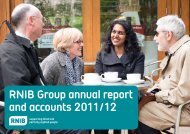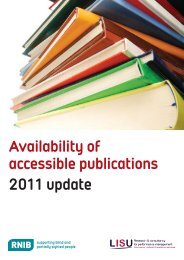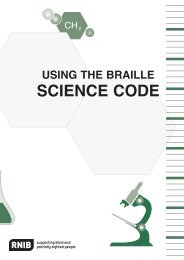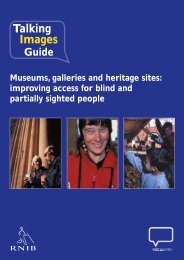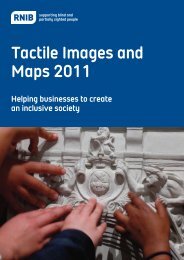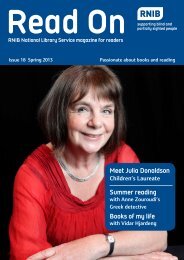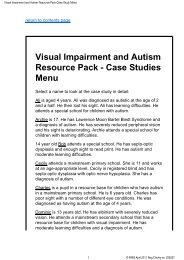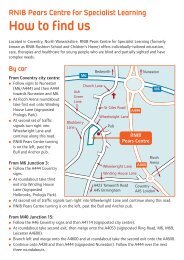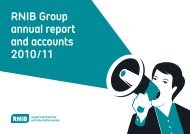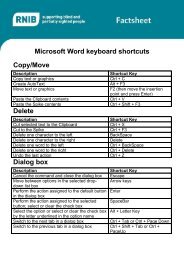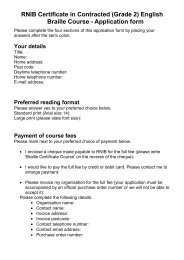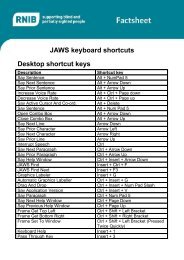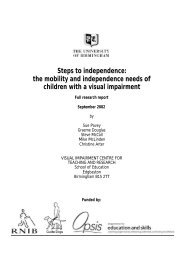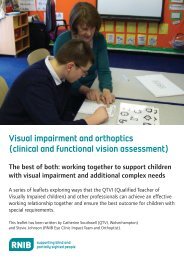Download Complete Report (PDF 1.19mb) - RNIB
Download Complete Report (PDF 1.19mb) - RNIB
Download Complete Report (PDF 1.19mb) - RNIB
You also want an ePaper? Increase the reach of your titles
YUMPU automatically turns print PDFs into web optimized ePapers that Google loves.
5. Setting the scene<br />
5.1. Personas<br />
As noted in the Methods chapter (Chapter 3), a total of 38 people were interviewed.<br />
The majority (n=24) were blind or partially sighted, and there were three additional<br />
samples: people with dyslexia (n=3), people with manual dexterity impairment (n=3)<br />
and a control sample of sighted participants who reported that they were not affected<br />
by dyslexia or manual dexterity impairment (n=8). In addition, 100 blind or partially<br />
sighted people were respondents for the Short Preference Survey, and many chose to<br />
describe their DAB radio experiences beyond the information collected by this<br />
structured Survey.<br />
A broad range of life situations and experiences with DAB were described to us. To<br />
bring our research participants to life for the reader, we present five ‘personas’. None<br />
of the personas were real participants in the research, but their characteristics and<br />
features are based on research observations gained in this project. The key thing to<br />
note from the personas is that blind and partially sighted and sighted digital radio<br />
users have many overlapping needs and requirements.<br />
Persona 1: Susie, age 27 years, student<br />
Very confident with a range of technologies, cost sensitive (bought 2nd hand on<br />
eBay, wanted portable access):<br />
- iPod, PC, mobile; enjoys the range of stations that DAB offers, and improved<br />
reception<br />
Uses DAB independently:<br />
- Presets, re-scanning, alarm clock, volume, station surfing<br />
Blind since birth, Susie’s DAB use differs from a sighted person:<br />
- No access to extra information on the DAB screen<br />
- Initially had to be shown how to use, and still sometimes relies on friends for<br />
trouble shooting; wishes her DAB gave some (tactile or audible) feedback to help<br />
her work out where the various settings are at<br />
- Takes her longer to find a station (by memorising the order in which radio stations<br />
are listed, listening to hear what station is on) than her flatmates<br />
“The main advantage of analogue is that you know what you’re doing just twirling<br />
the dial.”<br />
38



